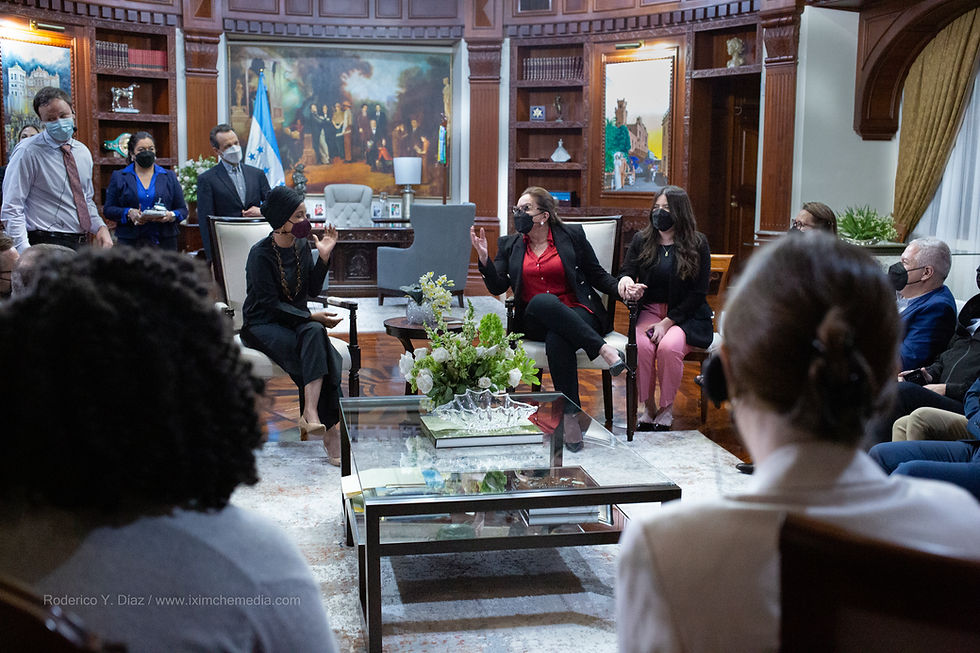KEEPING FAITH WITH RAMÓN FIALLOS
- Jul 22, 2019
- 3 min read
By John Walsh

When Hondurans mobilize in resistance, as they increasingly have been doing nationwide for the past two months, the Ramón Fiallos Bridge over the river Lean is frequently the location for a demonstration. On July 5th, the Witness for Peace Solidarity Collective responded to a request to provide human rights accompaniment for a peaceful protest there against the privatization of public education and healthcare. Whether or not the presence of two of us as international observers was a factor, when a large number of police and military arrived on the scene they did not, that day, resort to heavy-handed repression. Instead, after a discussion between the protestors and the authorities, the protest continued for the few minutes remaining until it's announced ending time, when it disbanded with dignity.
Too often things don’t turn out that way.
A week earlier, at the same place, a Honduran human rights defender was threatened with death by a member of the military. And, a week later, police launched large quantities of teargas, including a canister aimed from short range directly at the back of a man who was leaving the scene – I saw the mark it left on his skin, and learned he was then detained incommunicado for several hours.
The name of the bridge commemorates Ramón Fiallos, a leader in the community of Arizona, Atlántida, who was shot by security forces of the state when they violently repressed another protest the night of January 22nd, 2018. His wound might not have been fatal, but those security forces prevented medical attention from reaching him, sealing his fate as one of the 33 civilian deaths documented by the Honduran Coalition Against Impunity in the period from
November 26, 2017 to January 23, 2018, when police and military repression of protests was intense in the wake of apparent fraud in the presidential election. In the case of Don Ramón, the public prosecutor’s office has been conducting an investigation into the circumstances of his death, but, approaching a year and a half after the event, no one has been held responsible. Not only do his family and his community deserve justice, but accountability is also necessary to forestall more violent repression and more deaths.
As someone who was present in January 2018 at the wake for Don Ramón Fiallos, and at his burial, and who has seen the pain in the eyes of his family and friends, I join them in demanding an end to impunity for his death, particularly since both the repression that killed him and the inaction that allows for impunity are enabled by the posture of the United States government with regard to Honduras.

Don Ramón is remembered not only at the bridge. Traveling up the gravel road along the river Lean, turning off through the town of Mezapita, and continuing on a dirt road toward the Nombre de Dios mountains and the peak known as Liberación, eventually you reach the campamento digno (Dignity Camp) Jilamito, a site occupied 24 hours a day and seven days a week in resistance to a proposed private hydroelectric project that would threaten the source of water for the community. Ramón Fiallos was one of the people most active in organizing the Jilamito campamento, as is manifest in the banner with his image and the glass case with keepsakes from his life.
Don Ramón vive, la lucha sigue!




Comments